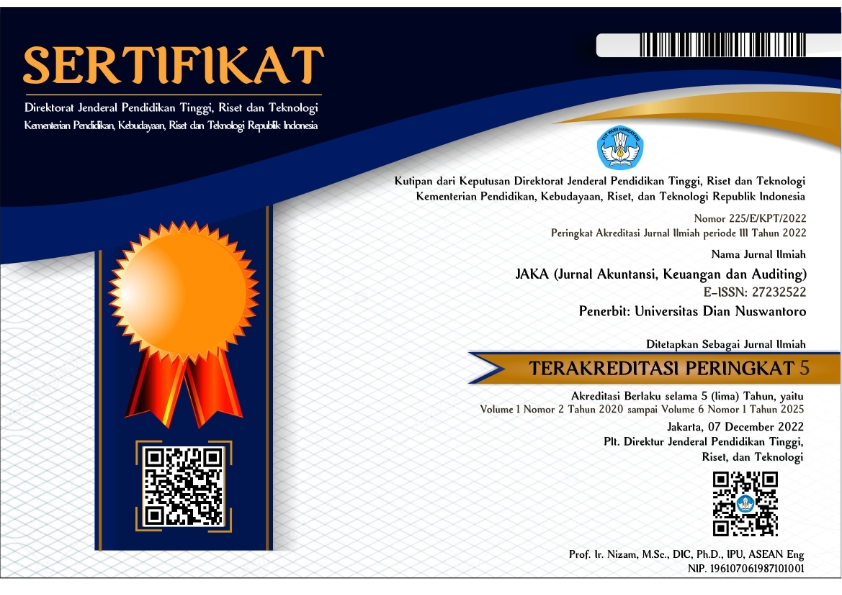Efektivitas Manajemen Sumber Daya Manusia Untuk Pengelolaan Industri Berbasis Ekonomi Kreatif di SK COFFEE LAB Kediri
DOI:
https://doi.org/10.56696/jaka.v3i2.7205Abstract
The purpose of this study is to provide exposure by processing and reviewing to be able to find out more deeply about the effectiveness of human resource management regarding the relationship between creative economy management. Effectiveness measures the achievement of the goals to be achieved by the level of success produced by a person or organization. Therefore, the level of the plan achieved can be more effective through the management of Human Resource Management (HR) as one of the most important elements in moving the creative Economic Industry sector so that it can continue to run. The research method uses qualitative research methods, namely research by, analyzing and making data interventions found based on the results of interviews, observations (observations) and document studies. HR management has a role to regulate the management of existing human resources and natural resources, namely the workforce so that they can provide maximum results in order to achieve goals and objectives. The creative economy relies on the capabilities possessed to be concentrated in existing problems, to be able to obtain results from processing sources of knowledge, information possessed and the creativity that exists to support the development of various sectors of the creative economy.References
Astuti, Riffely Dewi, Pengantar Bisnis, Tanggerang Selatan, Universitas Terbuka, 2013.
Ayu, Nitia Agustina Kala. Peluang Social Innovation dalam Revolusi Industri 4.0 Bagaimana Perkembangannya di Indonesia? Cetakan Pertama. Yogyakarta: Forbil Institute, t.t. Badan Ekonomi Kreatif Indonesia, Laporan Penyelenggaraan Penyusunan Data Statistik Dalam Rangka Big Data Ekonomi Kreatif, Jakarta, Badan Pusat Statistik, 2016.
Badan Ekonomi Kreatif Indonesia, Data Statistik dan Hasil Survei Ekonomi Kreatif, Jakarta, Badan Pusat Statistik. 2016
Eni Andari. 2005. Meraih Keunggulan Melalui Pengintegrasian Perencanaan Sumber Daya Manusia Dan Perencanaan Strategik. Edisi Khusus Jurnal Siasat Bisnis. Melalui http://journal.uii.ac.id/index.php/JSB/article/viewFile/968/877
Eni Munarsih. 2010. Pentingnya Karyawan Yang Inovatif Bagi Organisasi. Melalui http://desainulang.com/2010/05/pentingnya-karyawan-yang-inovatif-bagi-organisasi.html
Hartono, Deny Dwi, dan Malik Cahyadin. “Pemeringkatan Faktor Keberlangsungan Usaha Industri Kreatif di Kota Surakarta.” Jurnal Ekonomi dan Kebijakan Publik Volume 4, no. 2 (2013): 225–36.
Haryono, Siswoyo. Re-Orientasi Pengembangan SDM Era Digital pada Revolusi Industri 4.0. Yogyakarta: Direktoran Pascasarjana Universitas Muhammadiyah Yogyakarta, 2018.
Hasibuan, Malayu S.P, Manajemen Sumber Daya Manusia, Edisi Revisi, Bumi Aksara, Jakarta. 2003
Hartimbul Ginting. Nembah F., Manajemen Pemasaran, Bandung, CV. Yrama Widya. 2011.Jakarta:
Laksita Indonesia, 2015. Engel. “Dasar-Dasar Manajemen”. Paper Knowledge . Toward a Media History of Documents., 2014.
Downloads
Published
How to Cite
Issue
Section
License
Copyright (c) 2022 JAKA (Jurnal Akuntansi, Keuangan, dan Auditing)

This work is licensed under a Creative Commons Attribution-ShareAlike 4.0 International License.












